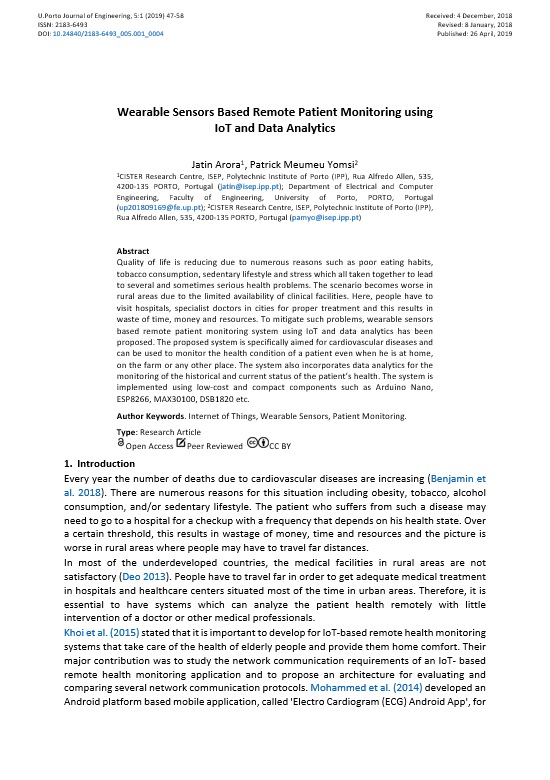Wearable Sensors Based Remote Patient Monitoring using IoT and Data Analytics
Main Article Content
Abstract
Quality of life is reducing due to numerous reasons such as poor eating habits, tobacco consumption, sedentary lifestyle and stress which all taken together to lead to several and sometimes serious health problems. The scenario becomes worse in rural areas due to the limited availability of clinical facilities. Here, people have to visit hospitals, specialist doctors in cities for proper treatment and this results in waste of time, money and resources. To mitigate such problems, wearable sensors based remote patient monitoring system using IoT and data analytics has been proposed. The proposed system is specifically aimed for cardiovascular diseases and can be used to monitor the health condition of a patient even when he is at home, on the farm or any other place. The system also incorporates data analytics for the monitoring of the historical and current status of the patient’s health. The system is implemented using low-cost and compact components such as Arduino Nano, ESP8266, MAX30100, DSB1820 etc.
Downloads
Article Details
Authors who publish with this journal agree to the following terms:
- Authors retain copyright and grant the journal right of first publication with the work simultaneously licensed under a Creative Commons Attribution License that allows others to share the work with an acknowledgement of the work's authorship and initial publication in this journal.
- Authors grant the journal the rights to provide the article in all forms and media so the article can be used on the latest technology even after publication and ensure its long-term preservation.
- Authors are able to enter into separate, additional contractual arrangements for the non-exclusive distribution of the journal's published version of the work (e.g., post it to an institutional repository or publish it in a book), with an acknowledgement of its initial publication in this journal.
- Authors are permitted and encouraged to post their work online (e.g., in institutional repositories or on their website) prior to and during the submission process, as it can lead to productive exchanges, as well as earlier and greater citation of published work (See The Effect of Open Access).

